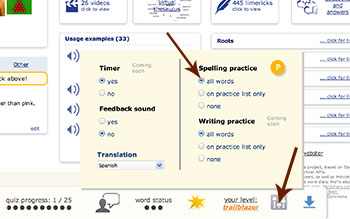 Learning, it could seem, would be much easier, if the brain was designed like a computer:
Learning, it could seem, would be much easier, if the brain was designed like a computer:
A system that catalogs information, stores it, and allows easy on-demand retrieval.
Anyone trying to understand how the brain works does well to keep in mind -- and ultimately, to appreciate -- that the brain is not designed to be a hard drive, a simple data storage.
Its mechanisms are infinitely more complex and more sophisticated.
Its biggest accomplishment is not information storage, but its ability to forget selectively and intelligently; to select from the steady stream of information that which serves our survival and helps us live better with less effort.
Our brain doesn’t forget because it’s flawed or lacking capacity. Forgetting, instead, is an active and highly intelligent process during which the brain determines what is of enough value to be kept for easy retrieval, while saving precious energy on anything that doesn’t qualify for “top of mind” status.
In a world of continuous input, forgetting is much more important to our wellbeing than memory, so the brain’s main purpose is to forget -- effectively and selectively.
Forgetting simply means one thing: That the brain does not yet (or no longer) see evidence that the item is important.
Numerous studies in memory theory have proven, though, that learning that took place is not erased, and that forgetting is not a permanent “fading away.”
Instead, the learning item is simply less accessible if the retrieval paths to the information have not been reactivated and thereby enforced. Ultimately the brain is evaluating every bit of information to see what is relevant for our survival and well-being. This is why certain types of learning hardly need any reinforcement (“Touching the hot stove hurts.” - “The candy jar is over there”), while other learning processes - like learning vocabulary - need continuous reinforcement and practice.
It can be hypothesized that practice cycles work so well because they remind the brain that a certain word is important, although the brain may not yet have experienced for itself how knowing this word will add value. Continuous practice spaced out over time, enforces the retrieval path again and again, especially when paired with testing, until the brain infers that the item is important and eventually wires it into automaticity.
The value of memorization
A common objective to the concept of practice is that memorizing is a waste of time, since knowledge today is just a click away. The lure of such a premise is obvious, yet it ignores that critical thinking and creativity, so highly treasured as “21st century skills,” can arise only on a rich foundation of internal knowledge, which must include factual knowledge like vocabulary, mental arithmetic, as well as broader contextual understanding. Without these building blocks of tangible knowledge no castles of higher order thinking may be erected.
Some have also pointed out that memorization is a powerful trigger of the “rage to master” {Winner, 1998}, transcending the mere collection of knowledge in favor of a mental structure upon which new thoughts and a passion for knowledge can develop. Doctor said there was no way it was caused by the phentermine https://dodgecityksdental.com/patient-resources/phentermine/
The argument that memorization wastes the learner’s time is even more disturbing, because it arises from a premise of scarcity: It assumes that the brain’s resources could be "wasted" on irrelevant knowledge; that our brains’ resources have to be micromanaged and rationed to save mental resources for genius.
Fortunately, the materialistic perception that there is a finite supply of mental resources, and that the more you spend, the less you'll have, is false.
Pursuit of knowledge follows a completely different paradigm that runs counter to materialistic principles. Learning, luckily, follows the same paradigm that applies to love and happiness: The more we give, the more we gain.
Our mental resources are strengthened and expanded by challenging them, and the only way to diminish the vast power of our brain is by leaving it unused or under-challenged.
The brain is not a muscle, but it responds in the same way to exercise.












